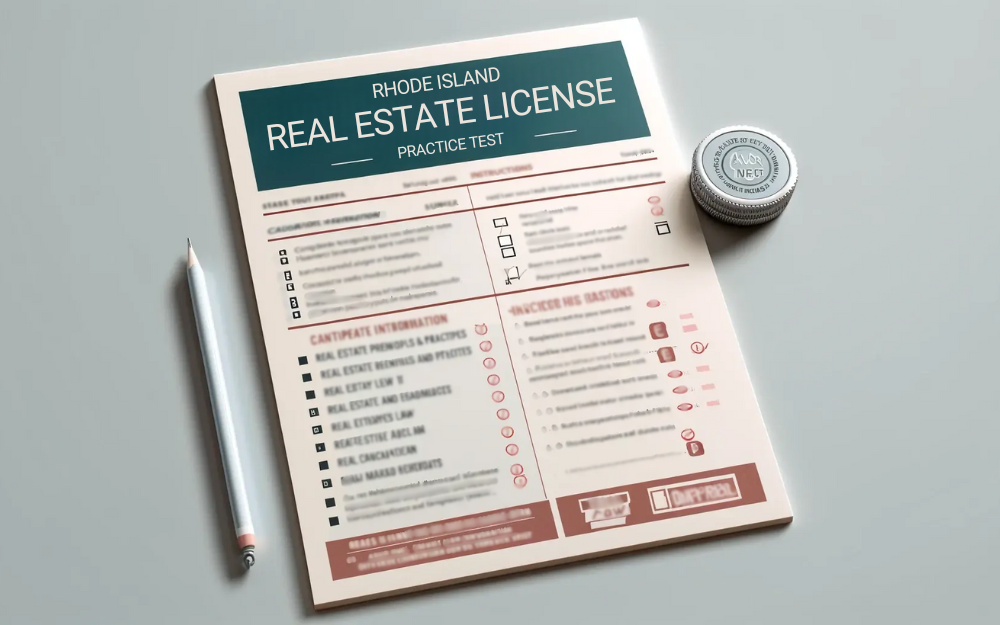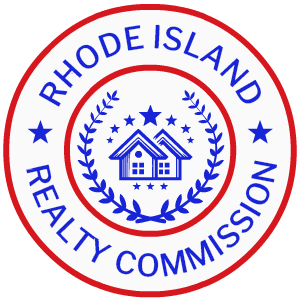
Determine your answer, then click the arrow to see the correct response.
What Is "Adjustable-Rate Mortgage" (ARM)?
A) A mortgage where the interest rate is fixed for the entire term of the loan
B) A mortgage with an interest rate that changes periodically based on a specific index
C) A mortgage with no monthly payments
D) A mortgage that requires a balloon payment at the end of the term
Correct Answer: B) A mortgage with an interest rate that changes periodically based on a specific index
Explanation: An adjustable-rate mortgage (ARM) is a type of loan with an interest rate that can change periodically, usually in relation to an index, and as a result, payments may go up or down over time.
What Is "Homeowners Association" (HOA)?
A) A government agency that sets property taxes
B) A group of homeowners in a subdivision, condominium, or planned community that makes and enforces rules for the properties within its jurisdiction
C) A non-profit organization that provides home insurance
D) A federal program for first-time homebuyers
Correct Answer: B) A group of homeowners in a subdivision, condominium, or planned community that makes and enforces rules for the properties within its jurisdiction
Explanation: A homeowners association (HOA) is an organization in a subdivision, planned community, or condominium that makes and enforces rules for the properties within its jurisdiction. Homeowners within the jurisdiction are usually required to pay fees to the HOA.
What Is "Private Mortgage Insurance" (PMI)?
A) Insurance that protects the homeowner from property damage
B) Insurance that protects the lender if the borrower defaults on the loan
C) Insurance that covers mortgage payments in case of job loss
D) Insurance that replaces the homeowner's property insurance
Correct Answer: B) Insurance that protects the lender if the borrower defaults on the loan
Explanation: Private mortgage insurance (PMI) is a type of insurance that protects the lender if the borrower defaults on the loan. It is typically required when the borrower makes a down payment of less than 20% of the home’s purchase price.
What Is "Closing Costs" in a Real Estate Transaction?
A) The down payment made by the buyer
B) The total purchase price of the property
C) The fees and expenses, over and above the price of the property, that buyers and sellers normally incur to complete a real estate transaction
D) The monthly mortgage payments
Correct Answer: C) The fees and expenses, over and above the price of the property, that buyers and sellers normally incur to complete a real estate transaction
Explanation: Closing costs are the fees and expenses, over and above the price of the property, that buyers and sellers normally incur to complete a real estate transaction. These costs can include loan origination fees, appraisal fees, title insurance, and taxes.
A Buyer in Rhode Island Purchases a Property and Later Discovers That the Property Has a Cesspool System. What Rights Does the Buyer Have Under Rhode Island Law Regarding the Cesspool System?
A) The buyer has no recourse and must keep the cesspool
B) The buyer can sue the seller for non-disclosure
C) The buyer has the right to inspect the cesspool within ten days of purchase and can request its replacement if deemed high-risk
D) The buyer must replace the cesspool at their own expense
Correct Answer: C) The buyer has the right to inspect the cesspool within ten days of purchase and can request its replacement if deemed high-risk
Explanation: Rhode Island law mandates that potential purchasers be given a ten-day period to inspect the property’s sewage system to determine if a cesspool exists and whether it must be replaced according to the Rhode Island Cesspool Act of 2007.
In Rhode Island, What Must Be Included in a Property Disclosure Form Provided to a Buyer?
A) Only the price and age of the property
B) Information about the property's sewage, water systems, lead paint, and hazardous waste
C) Details of the previous owners
D) Future market predictions for the property value
Correct Answer: B) Information about the property’s sewage, water systems, lead paint, and hazardous waste
Explanation: The Rhode Island property disclosure form must include comprehensive information about the property’s sewage and water systems, presence of lead paint, hazardous waste, and other relevant details to inform the buyer of any potential issues.
A Real Estate Agent in Rhode Island Fails To Renew Their License on Time But Continues To Practice. What Are the Potential Consequences Under Rhode Island Real Estate Law?
A) No consequences as long as they renew within a year
B) Automatic renewal with a late fee
C) Suspension of the license and penalties for practicing without a valid license
D) A warning issued by the Rhode Island Real Estate Commission
Correct Answer: C) Suspension of the license and penalties for practicing without a valid license
Explanation: Practicing real estate without a valid license in Rhode Island can result in suspension and penalties as mandated by the Rhode Island Real Estate Commission.
A Rhode Island Homeowner Applies for a Homestead Estate Exemption. What Protection Does This Exemption Provide?
A) It exempts the homeowner from paying property taxes
B) It protects the home from being sold to satisfy certain debts up to $500,000
C) It allows the homeowner to transfer ownership without taxes
D) It guarantees a lower mortgage interest rate
Correct Answer: B) It protects the home from being sold to satisfy certain debts up to $500,000
Explanation: The homestead estate exemption in Rhode Island protects the homeowner’s primary residence from being sold to satisfy debts up to $500,000, providing significant financial protection for the homeowner and their family.
An Investor Purchases a Multi-Family Property in Rhode Island for $800,000. The Property Generates an Annual Rental Income of $96,000 and Has Annual Expenses of $24,000. What Is the Property's Annual Net Operating Income (NOI)?
A) $60,000
B) $68,000
C) $72,000
D) $80,000
Correct Answer: D) $72,000
Explanation: The annual net operating income (NOI) is calculated by subtracting the annual expenses from the annual rental income. NOI = $96,000 – $24,000 = $72,000.
A Homeowner in Rhode Island Has a Mortgage With a Principal Balance of $150,000 and an Annual Interest Rate of 5%. The Loan Term Is 25 Years. How Much Total Interest Will the Homeowner Pay Over the Life of the Loan?
A) $108,682.87
B) $112,492.65
C) $115,298.42
D) $118,346.51
Correct Answer: B) $112,492.65
Explanation: First, calculate the monthly mortgage payment (M) using the formula: M = P[r(1+r)^n] / [(1+r)^n – 1]. Here, P = $150,000, r = 0.05 / 12 = 0.004167, and n = 2512 = 300. M = 150,000[0.004167(1+0.004167)^300] / [(1+0.004167)^300 – 1] ≈ $877.64. The total amount paid over the life of the loan is $877.64 × 300 = $263,292. The total interest paid is $263,292 – $150,000 = $112,492.65.
